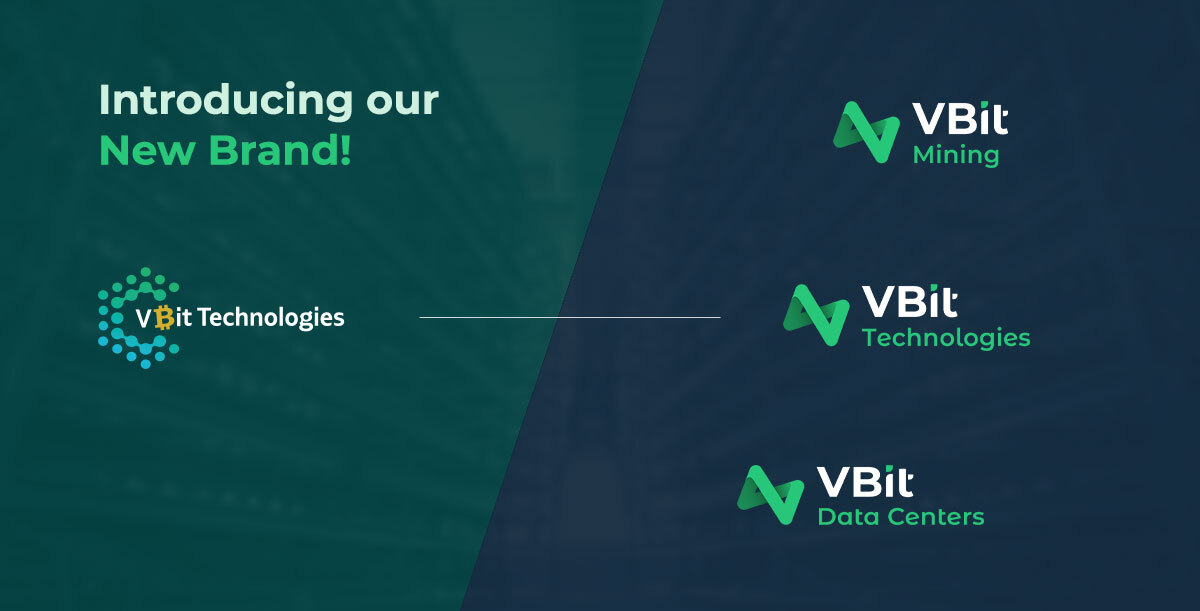What is Blockchain? The Future of Technology Unveiled.

Blockchain is a distributed ledger technology that allows for secure digital transactions. It is essentially a decentralized database.
Blockchain technology has been a revolutionary development since its inception in 2008. It is a digital ledger of transactions that is decentralized, distributed, and secured using cryptography. Blockchain has applications in various fields, including finance, healthcare, and logistics, among others.
It allows for secure and transparent storage and transfer of data without the need for intermediaries such as banks or government agencies. Blockchain also offers immutability, which means once a transaction is recorded, it cannot be altered or deleted. This makes blockchain a highly secure and reliable technology for various applications.

Credit: cointelegraph.com
The Technology Behind Blockchain
Blockchain technology has become increasingly popular over the past few years. It’s unique ability to provide a secure and decentralized method of storing and verifying data has captured the attention of tech enthusiasts, industry experts, and even government institutions. Understanding how blockchain works, however, can be a challenge.
In this section, we will discuss the technology behind blockchain and explore the key concepts that make it such a powerful tool for the future of technology.
Cryptography
Cryptography is a core element of blockchain technology. It is a technique that uses complex algorithms to encrypt and decrypt data, ensuring secure communication and storage. When data is entered into a blockchain, it is encrypted using cryptographic algorithms, making it almost impossible for anyone to tamper with the information.
Some key cryptographic concepts used in blockchain technology include:
- Hashing: A mathematical function that converts data into a fixed-size output, known as a hash. Hashes are unique to each block and are used to verify the data’s integrity.
- Public key cryptography: Also known as asymmetric cryptography, it uses a pair of keys – public and private – to encrypt and decrypt data. The public key is used to encrypt data, while the private key is used to decrypt it. This ensures that only those with the private key can access the data.
- Digital signatures: A way of verifying the authenticity of data. It uses a combination of the sender’s private key and the data being sent to create a unique signature. The recipient can then use the sender’s public key to verify the signature.
Distributed Ledger
A blockchain is essentially a distributed ledger. A ledger is a record of transactions, and a distributed ledger is a ledger that is shared across a network of computers. In a blockchain, each computer on the network has a copy of the ledger.
Every time a new transaction is added to the blockchain, it is verified by the network and then added to every node’s copy of the ledger. This creates a decentralized system, where no single entity has control over the ledger.
Blockchain technology also has the ability to create immutable records. Once a transaction is added to the blockchain, it cannot be altered or deleted. This means that the ledger provides a permanent and transparent record of all transactions, making it ideal for industries such as finance and supply chain management.
Consensus Algorithm
Consensus algorithms play a crucial role in ensuring the integrity of the blockchain. They are used to verify new transactions and ensure that all nodes on the network agree on the state of the ledger. There are several consensus algorithms used in blockchain technology, including:
- Proof of work (pow): The first consensus algorithm used in blockchain technology. It requires network participants (known as miners) to perform complex mathematical calculations to validate transactions and add new blocks to the chain.
- Proof of stake (pos): An alternative to pow, where the network participants (known as validators) are chosen based on the amount of cryptocurrency they own and are willing to ‘stake’ or ‘lock up’ in the network.
- Delegated proof of stake (dpos): A variant of pos, where network participants vote to elect delegates to validate transactions and add new blocks to the chain.
Understanding the technology behind blockchain is essential to grasp the full potential of this innovative technology. With the use of cryptography to secure data, a distributed ledger to provide transparency, and consensus algorithms to ensure integrity, blockchain technology is poised to transform industries and revolutionize the way we store and exchange information.
Blockchain Applications
Blockchain is no longer just a concept but an actual technology with various applications. Here are some of the major applications of blockchain:
Cryptocurrency
Cryptocurrency is the most popular application of blockchain technology. It allows secure, peer-to-peer transactions without the need for a central authority, making it a decentralized system. Some of the benefits of cryptocurrency include:
- Secure transactions: Blockchain is designed to provide a secure way of storing and exchanging digital assets. As a result, the transaction records are immutable, and it is impossible to alter or delete them.
- Fast transactions: Cryptocurrency transactions are almost instant, and they do not go through the traditional banking system, making them faster than bank transfers.
- No intermediaries: Cryptocurrency transactions are conducted directly between the sender and receiver without intermediaries, such as banks and other financial institutions.
Supply Chain Management
Blockchain technology can be used to revolutionize supply chain management, as it offers transparency and traceability of goods throughout the supply chain. Some of the benefits of using blockchain in the supply chain management include:
- Transparency: All the stakeholders in the supply chain can see the product’s journey from manufacturer to the customer, ensuring transparency and accountability.
- Traceability: Blockchain provides a tamper-proof record of every product’s history and movement, allowing for easy tracking and retrieval of products in case of any issues or defects.
- Efficiency: Blockchain automates several supply chain processes, reducing the need for intermediaries and reducing the time and costs involved in completing a transaction.
Healthcare
Blockchain technology can be used to streamline processes in the healthcare industry, as it provides a secure and transparent way of storing and exchanging medical records. Here are some of the benefits of using blockchain in the healthcare industry:
- Patient data integrity: Blockchain ensures the privacy and security of patient records, granting access only to authorized healthcare providers.
- Interoperability: Blockchain provides a decentralized system that allows healthcare providers to access patient data from different organizations faster and easier.
- Clinical trials: Blockchain makes clinical trials more transparent and secure, as it ensures the integrity of data, supporting the whole process of drug development.
Banking
Blockchain technology can be used to improve traditional banking and financial systems by enabling faster and more cost-effective financial transactions. Here are some of the benefits of using blockchain in the banking industry:
- Faster transactions: Blockchain technology eliminates intermediaries in financial transactions, ensuring faster, cheaper, and more secure transactions.
- Lower transaction costs: Blockchain eliminates intermediaries such as banks, reducing the cost of financial transactions.
- Improved security: Blockchain technology offers greater levels of security by providing a tamper-proof record of transactions and making it difficult for hackers to breach the system.
Blockchain technology has evolved and is now helping change various industries. Its applications range from digital currencies to supply chain management, healthcare, and banking. It is worth exploring how blockchain can revolutionize other industries in the future.
Advantages Of Blockchain
Blockchain technology has become one of the most discussed topics in the tech industry. It is a decentralized system that records transactions between parties securely and transparently on a shared digital ledger. It has the potential to revolutionize various industries and change the way we interact with the digital world.
We will explore the key advantages of blockchain technology using specific h3 headings and adhering to markdown syntax.
Immutable Record-Keeping
One of the significant advantages of the blockchain is its immutable record-keeping feature. Once something is recorded on the blockchain, it cannot be altered or deleted. This feature eliminates the possibility of fraudulent activities, ensuring that every transaction on the network is secure and traceable.
Blockchain’s immutable record-keeping feature will be beneficial for various industries, including finance and healthcare, as it can help guarantee the authenticity of crucial data. Additionally, it can aid in performing audits and streamlining various business operations.
Decentralization
Another critical advantage of blockchain is its decentralized nature. Unlike traditional centralized systems where a central authority controls and manages the network, blockchain is distributed across multiple nodes maintained by its users. The decentralized feature of blockchain reduces the risk of hacking and cyber-attacks, as there is no single point of failure.
Decentralization also offers more transparency, as all transactions are recorded in an open and distributed ledger. This feature ensures that every participant in the network can see and access transactions, leading to better accountability and increasing trust in the system.
Security & Privacy
Security and privacy are two essential factors when it comes to digital transactions. Blockchain technology uses cryptography to ensure that transactions are secure and private. Every transaction is verified, authenticated, and encrypted using complex algorithms that make it almost impossible to hack.
The use of cryptography, coupled with the decentralized network and immutable record-keeping feature, makes blockchain one of the most secure systems in the world. Additionally, the system ensures privacy by keeping personal information confidential, making it ideal for storing sensitive data.
Transparency & Traceability
The transparency and traceability of blockchain are two more key advantages it offers. Every transaction on the network is recorded and is visible to every participant on the network. This feature ensures transparency throughout the entire network, making it nearly impossible to engage in fraudulent activities.
Additionally, the traceability feature of blockchain enables transferring of assets through an auditable trail, which is beneficial in supply chains, where transparency and traceability are critical. Using blockchain, users can track an item, from production to consumption, and ensure that it is authentic and has passed through necessary regulations.
The advantages of blockchain technology are numerous and can improve various industries. Its features, including immutable record-keeping, decentralization, security and privacy, and transparency and traceability, make it a reliable technology for recording transactions. As the technology continues to evolve, we can only imagine what other advantages it will offer.
Challenges And Limitations
What is blockchain? The future of technology unveiled.
Blockchain technology is rapidly changing the world we live in, and it has the potential to revolutionize various industries. However, this transformative technology has its own set of challenges and limitations that need to be addressed. In this section, we will explore some of the most important challenges and limitations facing the blockchain industry today.
Scalability Issues
Scalability is a significant issue facing the blockchain industry. Blockchain technology relies on a distributed network of computers to maintain the ledger of transactions. However, this distributed nature can make it difficult to process large volumes of transactions quickly, leading to slow transaction speeds and high fees.
Here are some of the key scalability issues facing blockchain technology:
- Limited transaction processing capacity leading to slow transaction speeds.
- Scaling solutions such as sharding and sidechains have yet to be widely adopted.
- The price of transactions can rise during periods of high demand.
Energy Consumption
Another important limitation of blockchain technology is its energy consumption. A significant amount of electricity is required to maintain the network, leading to environmental concerns. The process of verifying transactions through mining involves solving complex mathematical problems, which requires a lot of computational power and energy.
Here are some of the key issues related to energy consumption in the blockchain industry:
- The carbon footprint of mining is significant and can have negative environmental impacts.
- The energy requirements for mining can make blockchain technology inaccessible in regions with limited resources.
- Efforts are being made to develop more energy-efficient consensus mechanisms.
Regulatory Framework
Blockchain technology is still in its early stages, and the regulatory framework surrounding it is still being developed. This lack of regulatory clarity makes it challenging for businesses to adopt blockchain technology, leading to slow adoption rates.
Here are some of the key limitations related to the regulatory framework:
- Regulations vary greatly from country to country, leading to confusion and uncertainty.
- Existing regulations often don’t take into account the unique features of blockchain technology.
- The lack of regulatory clarity makes it difficult for businesses to adopt blockchain technology.
Interoperability
Interoperability is a significant challenge facing the blockchain industry. Most blockchain networks are siloed, which means they are unable to communicate with each other. This lack of interoperability can create challenges for businesses, as it limits the functionality and flexibility of blockchain technology.
Here are some of the key issues related to interoperability in the blockchain industry:
- Different blockchain networks use different protocols, making it difficult for them to communicate with each other.
- The lack of interoperability can create challenges for businesses, as it limits the functionality and flexibility of blockchain technology.
- Efforts are being made to develop standards for interoperability within the blockchain industry.
Blockchain technology has the potential to revolutionize industries, but it still faces a series of key challenges and limitations. By addressing these issues, we can unlock the full potential of blockchain technology and accelerate its adoption.
The Future Of Blockchain
Blockchain And The Internet Of Things
The internet of things (iot) consists of everyday objects linked to the internet via sensors to collect and exchange data. The blockchain technology can be integrated with iot, providing a secure and transparent network for communication between devices. Here are some benefits of using blockchain in the internet of things:
- Blockchain can improve iot security by creating an immutable, tamper-proof record of all data transactions, making it difficult for hackers to manipulate data.
- Iot devices can benefit from blockchain’s decentralized architecture, allowing for autonomous, peer-to-peer transactions.
- Increased efficiency in iot data management, as blockchain eliminates the need for intermediaries in data exchange.
- Seamless sharing of data between iot devices without the need for central authorities.
Integration With Artificial Intelligence
Artificial intelligence (ai) and blockchain are disruptive technologies that can transform various aspects of our lives. Together, they can create possibilities for autonomous, decentralized systems. Here are some ways blockchain enhances ai:
- Improved data privacy, integrity, and security by avoiding a single point of failure.
- Facilitates the secure and transparent exchange of data between different ai modalities.
- Offers more reliable, traceable and verifiable data to train ai models.
- Enables the creation of autonomous, trustless ai systems that operate without human intervention.
Blockchain As A Service
Blockchain as a service (baas) is a cloud-based framework that allows businesses to develop, host and use their blockchain apps, contracts, and tools without the hassle of managing an on-premises blockchain network. Some reasons why companies are using baas instead of building their own blockchain networks:
- Reduced setup and maintenance costs, as the service providers manage the underlying infrastructure.
- Baas providers offer flexible pricing options and can scale with the growing needs of a business.
- It allows businesses to focus on development instead of the backend of the blockchain network.
- Baas providers implement the latest security standards and make it easy to integrate with existing enterprise systems.
Blockchain-Based Identity Management
Identity management has been a longstanding challenge in the digital age. Blockchain can provide an immutable, decentralized, and secure identity management solution. Here are some benefits of blockchain-based identity management:
- Greater security and privacy by eliminating single points of failure and reducing the risk of identity theft and fraud.
- Users have control over their personal information, allowing them to share data selectively and only with trusted parties.
- Reduced administrative costs and streamlining of know-your-customer (kyc) and anti-money laundering (aml) compliance.
- Greater efficiency by enabling faster verification and authentication processes.
The future of blockchain looks bright, and its adoption rate is increasing. Blockchain has already disrupted various industries such as finance, supply chain management, and healthcare. With advancements in technology and the integration of ai and iot, blockchain’s potential impact on various sectors remains substantial.
Frequently Asked Questions For What Is Blockchain Mcenterntw
What Is Blockchain Technology?
Blockchain technology is a decentralized digital ledger. It enables a secure transaction and data transfer without intermediaries or a trusted third party. The technology eliminates the need for an intermediary and provides transparency, security, and immutability.
Why Is Blockchain Technology Important?
Blockchain technology is important because it’s secure. Transactions are verified and approved by the network, not a centralized authority. It’s decentralized, making it immutable, tamper-proof, and transparent. It enables cross-border payments, smart contracts, and eliminates intermediaries.
How Does Blockchain Technology Work?
Blockchain technology works by using cryptography to protect the integrity of the network. Transactions on the network are grouped together and formed into a “block. ” The block is verified and added to the existing chain of blocks, creating a permanent, tamper-proof record.
What Are Smart Contracts?
Smart contracts are self-executing agreements written in code and stored on a blockchain. They are designed to automatically execute when specific conditions are met, eliminating the need for intermediaries like lawyers or brokers. Smart contracts can be used for things like voting systems, supply-chain management, and more.
What Are Cryptocurrencies?
Cryptocurrencies are digital or virtual currencies that use cryptography for security. They operate independently of central banks and are decentralized. Bitcoin is the most well-known cryptocurrency, but there are many others such as ethereum, litecoin, and ripple.
Conclusion
In this blog post, we delved into the concept of blockchain and its significance in today’s world. We learned that blockchain is a decentralized system that enables secure and transparent transactions without intermediaries. It provides a secure and tamper-proof platform for businesses and individuals to conduct their transactions.
With its unique features such as transparency, decentralization, and security, blockchain technology shows immense potential to change the way businesses operate globally. As it eliminates the need for intermediaries, blockchain technology can increase efficiency and reduce costs for businesses. Moreover, it can also provide individuals with greater control and security over their data and transactions.
Therefore, it is essential for businesses to embrace this technology and start exploring the various use cases. Blockchain technology is undoubtedly a game-changer that has the potential to positively impact various industries and businesses worldwide.







